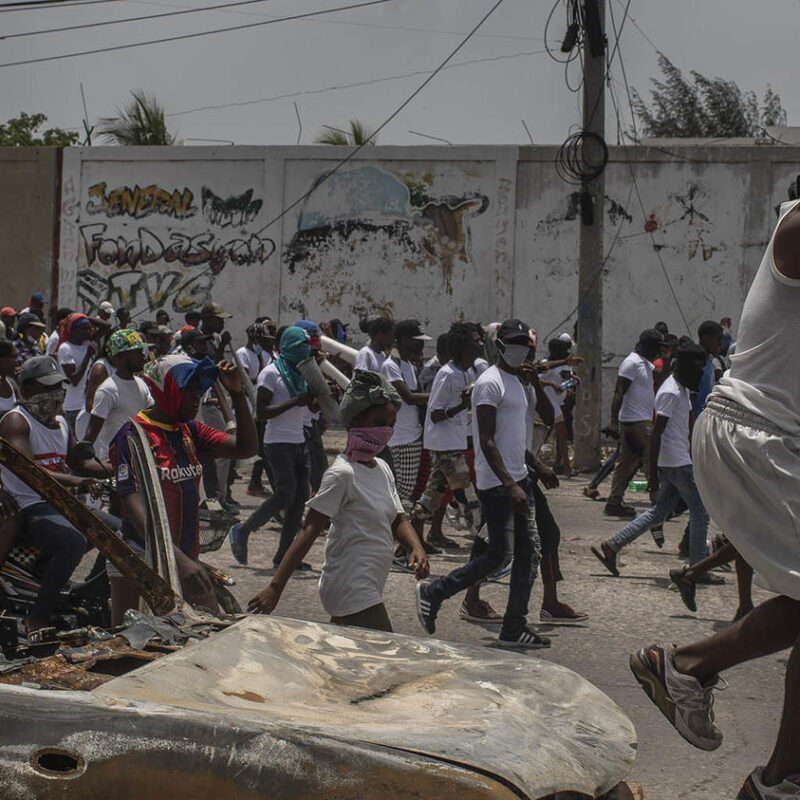Whose Eye is on Your Timeline? The First Amendment and DHS Surveillance
The fundamental promise of the First Amendment is that the government cannot suppress or punish speech simply because it is unpopular or critical of current policy. In the age of social media, however, that line is blurring, with the Department of Homeland Security (DHS) increasingly utilizing publicly available data for intelligence and vetting.
This creates a dangerous dynamic: While the government cannot legally “police” your language because it opposes party views, its expanded surveillance programs risk creating a chilling effect that pressures citizens and residents into self-censorship.
👁️ Who Deems a Post a “Threat,” and How Broad is the Scope?
The greatest source of concern is the vague, broad criteria used to define what triggers surveillance and negative consequences.
The Scope and the “Threat” Determination
DHS components like USCIS (U.S. Citizenship and Immigration Services) and CBP (Customs and Border Protection) monitor publicly available social media for various purposes, including:
- Vetting for Immigration Benefits: USCIS and State Department policy now require certain applicants to provide their social media handles, which are screened for indicators of “hostile attitudes”, “antisemitic activity,” or posts deemed to be against the “American way of life.”
- Situational Awareness: CBP and other components use automated tools and keyword lists (which can include terms like “attack,” “public health,” or even simple political terms) to monitor for potential threats to facilities or personnel.
The determination of a “threat” is made through a combination of automated AI tools and human analysts.
- The Slippery Slope: The core issue is that AI struggles to distinguish between constitutionally protected speech (e.g., political satire, hyperbole, or critical commentary) and genuine, actionable threats. Automated systems casting a wide net often flag speech based on mere keywords or association, leading to the mass collection of information on individuals who have done nothing more than engage in lawful political discourse.
- Internal Standard: CBP policy states that personnel are trained to distinguish between First Amendment protected activities and credible threats, requiring a balancing test. However, critics argue this test is easily overruled when the sheer volume of data is processed by algorithms looking for “disfavored” content.
The scope is vast: DHS policy explicitly allows for the collection and retention of public social media information and associated data (handles, aliases, search results) on non-citizens, including Lawful Permanent Residents (Green Card holders), and sometimes their U.S. citizen relatives, linking this data to permanent government files (A-Files).
⚖️ Legality and Impact on U.S. Citizens and Residents
While DHS’s surveillance programs primarily target non-citizens for vetting purposes, their implementation creates legal and constitutional challenges for everyone in the United States.
The First Amendment Infringement: The Chilling Effect
The most immediate infringement on the rights of U.S. citizens and permanent residents is the “chilling effect.”
- When a U.S. citizen knows their social media activity could negatively impact a spouse’s green card application, a parent’s visa, or their own naturalization process, they become less likely to express critical, controversial, or politically charged views.
- This voluntary suppression of speech is a violation of the First Amendment’s intent, as it limits the free flow of ideas in the digital public square due to government pressure and fear of retaliation.
The Legal Challenges for Citizens and Residents
The distinction between citizens and non-citizens is critical but is being legally challenged:
| Status | Constitutional Rights | Legal Status of Surveillance |
| U.S. Citizens | Full First Amendment Protection | Government cannot target and collect a citizen’s protected speech unless it is directly relevant to a genuine law enforcement or national security investigation, and generally requires a heightened standard of suspicion. The mass, untargeted collection of their public posts is still legally controversial. |
| Lawful Permanent Residents (LPRs) | Significant First Amendment Protection | LPRs (Green Card holders) are largely protected by the First Amendment. However, their status, though permanent, is still an immigration benefit. Information collected via social media can be used in future immigration decisions (e.g., naturalization), making the threat of adverse action a powerful tool for suppressing their speech. |
| Visa Applicants/Non-Citizens | Fewer Rights Regarding Entry | The Supreme Court has upheld the government’s broad authority regarding who is admitted to the country. The government can use information—including social media posts—to deny a benefit based on a determination of inadmissibility, even if that post would be protected speech for a citizen. |
Active Litigation
These policies are not settled law. Union groups and civil liberties organizations like the Electronic Frontier Foundation (EFF) and the Brennan Center are actively suing the State Department and DHS, alleging that the massive, AI-fueled surveillance programs violate the First Amendment and target citizens and noncitizens based on “disfavored” speech, particularly when it relates to labor rights or political dissent.
The ongoing legal battles reflect a profound societal question: Can we have national security without sacrificing the fundamental right to speak freely and associate without fear of a government file following us for decades?
What to do?
Given the expanded scope of social media surveillance by the Department of Homeland Security (DHS)—which affects visa holders, Lawful Permanent Residents (LPRs or Green Card holders), and even U.S. citizens associated with them—a proactive approach to managing your digital footprint is essential.
Here are practical steps and considerations for U.S. residents and citizens, particularly LPRs, to navigate the complex environment of DHS surveillance:
🔒 Practical Guide to Managing Your Digital Footprint
The goal is not to eliminate your online presence, but to align your public identity with your immigration record and to minimize the risk of misunderstanding or misinterpretation.
1. Audit Your Digital History (The Officer’s View)
- Self-Audit: Pretend you are a USCIS or CBP officer reviewing your file. Search your name and aliases (including handles and old usernames) on search engines and social media. Review posts from the perspective of someone unfamiliar with your context, slang, or culture.
- Check for Inconsistencies: Look for any posts that contradict information on your official immigration forms, such as:
- Employment: Posts suggesting unauthorized employment or a side job that wasn’t declared.
- Marital Status: Flirtatious posts or a public relationship status that contradicts a family-based application.
- Residency: Posts showing you spent excessive time outside the U.S. that could jeopardize your continuous residency requirement.
- The “Jokes” Rule: Never post jokes or sarcastic comments about committing crimes, terrorism, deceiving the government, or harming the U.S. or its officials. Slang, hyperbole, and humor are frequently misunderstood by automated filters and analysts.
2. Implement Maximum Privacy Settings
- Limit Visibility: Adjust your privacy settings on all platforms (Facebook, X, Instagram, LinkedIn, etc.) to the most restrictive level possible (e.g., “Friends Only” or “Private”).
- “Public” is Fair Game: Assume that any content that is currently public, or was public at any point, is available to DHS and can be permanently added to your A-File (Alien File).
- Disable Location Services: Turn off GPS/Location services for social media apps and for the camera function when posting. Geotagging can reveal personal addresses or travel patterns.
- Be Careful with Associations: Be highly selective about accepting “friend” or “follow” requests from strangers. Government agencies can use online associations to infer links to groups or individuals they deem suspicious.
3. Be Strategic About Content and Language
- Avoid Profanity/Aggression: Refrain from using aggressive, violent, or vulgar language, especially when discussing politics, government agencies, or current events. Excessive hostility can be flagged in a character assessment.
- Be Vague on Sensitive Topics: If you are actively engaged in political discussions that are highly critical of U.S. policy or involve international conflicts, be mindful that your words could be easily misinterpreted or misconstrued as “hostile attitudes.”
- “Liking” and “Sharing”: Remember that a “like,” “repost,” or “share” can be viewed by an immigration officer as an “endorsement” or “promotion” of the content, even if that was not your intent.
4. Professional vs. Personal Identity Management
- Dedicated Accounts: Consider separating your professional online presence (e.g., a carefully curated LinkedIn) from your personal accounts where you share family photos or political opinions. Use separate emails and distinct usernames.
- Review LinkedIn: Ensure your LinkedIn profile accurately reflects the employment and education history you provided on your visa, Green Card, or naturalization applications.
5. Understand the Limits of Deletion
- Deletion ≠ Erasure: Even if you delete posts or entire accounts, the information may have already been archived, screenshotted, or collected by DHS’s wide-net surveillance tools or commercial data brokers.
- The Best Defense is Prevention: The most effective defense is to be thoughtful about what you post before you hit send, recognizing that it may become part of your permanent record.
Important Caveat for LPRs
LPRs have a higher standard of protection than visa applicants, but their status is still technically an immigration benefit. Any post indicating a lack of “good moral character” or a disregard for U.S. law can be used against them in future processes (like naturalization or when they re-enter the country after travel).
If you believe your case has been negatively affected by social media monitoring, or if you have been questioned about your posts by government officials, it is strongly recommended to consult an immigration attorney or contact a civil liberties organization like the ACLU for guidance.


I know the precautions outlined are a form of self-policing, and the necessity of them directly challenges the ideal of a free and fearless democratic society.
The mindset that requires citizens and residents to self-censor out of fear of government reprisal is widely considered by civil liberties advocates and constitutional scholars to be an attack on democracy itself.
💔 The Conflict: Ideal vs. Reality
The Ideal Mindset (The Promise of the First Amendment)
In a functioning democracy protected by the First Amendment, the mindset should be one of intellectual liberty and robust dissent.
- Freedom to Experiment: Citizens should be free to explore and discuss radical, unpopular, or controversial ideas—political, social, or artistic—without government oversight or interference. This is crucial for innovation and social progress.
- No Fear of Retaliation: People should be able to criticize the government, its policies, and its officials vehemently, knowing that their dissent will not result in a loss of an immigration benefit, an investigation, or any form of selective punishment.
- The Power of Anonymity/Association: The right to associate with groups, causes, or ideas (even digitally) without government monitoring is vital for collective action and the protection of minority viewpoints.
The Real-World Mindset (The “Chilling Effect”)
The reality of mass, automated government surveillance of social media forces a different, fear-driven mindset—what legal scholars call the “chilling effect.”
- Self-Censorship: Individuals, knowing their words are being recorded, stored, and potentially used against them, choose to say less or moderate their speech to the lowest common denominator, avoiding any discussion that could be misinterpreted as “hostile” or “extremist.”
- Distortion of Public Discourse: This self-censorship undermines public debate. When critical voices or dissenting opinions are silenced, the government and its supporters face less scrutiny, and the public is deprived of the robust debate necessary to make informed political decisions.
- Prioritizing “The Record”: Individuals begin to fashion their behavior and speech not based on their genuine beliefs, but on how that behavior will look in a government file decades later (the “dossier society”). This destroys the authenticity and spontaneity that are vital to a free culture.
⚖️ Why This is a Democratic Crisis
The problem isn’t just about privacy; it’s about the health of the democratic process.
1. Undermining Accountability
A core function of free speech is to hold the powerful accountable. When citizens fear that criticizing an executive order or a government agency like DHS could jeopardize their status (or that of a family member), they are less likely to speak out. This allows unchecked government power to flourish.
2. Targeting Vulnerable Populations
The burden of self-policing falls disproportionately on those whose status is already conditional or viewed with suspicion, such as:
- Lawful Permanent Residents: Their path to naturalization can be derailed by “bad moral character” findings, making them highly susceptible to self-censorship.
- Racial and Religious Minorities: Vague “threat” criteria and biased AI algorithms often lead to the disproportionate monitoring of communities engaged in political speech related to international conflicts or civil rights.
3. The Absence of Harm
Courts have historically been skeptical of the “chilling effect,” dismissing it as “too speculative.” However, the evidence is mounting: the mere knowledge of being watched (even if no law is broken) is sufficient to deter people from accessing controversial information, participating in political organization, or sharing critical views. The harm is the speech that never occurs.
The Bottom Line
No, the mindset of constant self-policing is not the one a free society should endorse. The legal and practical steps to protect your digital identity are unfortunately necessary in the current climate, but they are a symptom of a serious erosion of constitutional ideals.
The existence of these DHS policies creates a fundamental contradiction: a government tasked with upholding the Constitution is simultaneously implementing surveillance programs that incentivize its people to surrender the very freedom the Constitution guarantees.
The ongoing legal challenges by civil liberties groups are the democratic pushback, arguing that the government must find ways to ensure national security that do not require sacrificing the First Amendment’s promise of a fearless citizenry.




